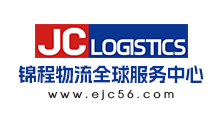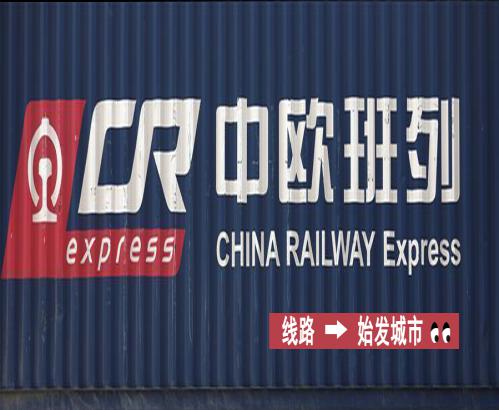Ocean freight issues adding to Brexit and Covid supply chain headaches
Retailers and other companies that import products from the Far East to the UK are facing major supply chain disruption and increased logistics costs resulting from the global shortage of shipping containers and challenges in accessing ocean freight capacity, adding to continuing Brexit-related and Covid-related challenges, one UK logistics representative has highlighted – as new UK government figures released this week highlighted how many UK import businesses are still overwhelmed by the impact of new post-Brexit trading conditions.
Noting that the scarcity of containers had helped push up ocean freight shipping prices to near record highs, Charlie Walker, head of marketing at logistics solutions specialist Walker Logistics, commented: “The container crisis is increasing the pressure on British retailers and manufacturers at a time when businesses are already having to contend with the impact of Brexit and the pandemic on their profitability. Many internet retailers are understood to be running out of stock of certain items while manufacturing firms have reported delays in production as a result of the difficulty of getting vital component parts from Asia.”
And it is not just imports from the Far East that are affected, Walker noted. Walker recently highlighted that UK importers and businesses were also still facing challenges due to the new post-Brexit trading conditions. He said a growing number of British online retailers were seeking to ease the extra customs and tax administration and costs involved in trading with the EU by shifting stock from UK warehouses to storage facilities on the Continent.
“The addition of VAT, customs duties, and in some cases tariffs, on shipments sent from the UK to customers across the channel – not to mention delays at ports and increased shipping costs – are prompting many businesses, including e-commerce firms, to reconfigure their European supply chains,” said Walker.
New UK government figures released this week reveal many businesses are still overwhelmed by the impact of Brexit. Over 39% of importers reported they are still struggling with new customs duties and 38.6% were battling with increased transport costs.
The international delivery specialist ParcelHero said the latest Office for National Statistics (ONS) Business Insights’ results, covering the period 5-18 April, show that there are still significant difficulties in importing goods from the EU post-Brexit. It warned that, inevitably, the increased costs will have to be passed on to consumers.
ParcelHero’s head of consumer research, David Jinks, said: “April’s figures on the importing and exporting challenges facing British businesses are pretty dire. The Government can no longer hide its head in the sands of Britain’s coastal borders. There was a huge flaw in the government’s final trade deal struck just before Christmas, and it’s seemingly insoluble.
“Under the Brexit so-called ‘free trade’ deal, goods arriving in the UK from the EU that are sourced and manufactured in Europe don’t pay tariffs. But how many products are entirely sourced and made in a single area in today’s world of global supply chains? The answer is very few. Electronics incorporate components from across the globe, while clothing can include materials from many continents. That’s why importers are paying more duties, customers are finding unexpected charges on items ordered from EU traders, and transport costs are rising because of mounting delays and returns.”
Jinks continued: “This latest ONS Business Insights assessment, in the section entitled ‘Exporting and Importing Challenges’, reveals that 41% of importers are still struggling with the nightmare of increased paperwork. Changing tax rules and new proof of origin forms have proved difficult for many companies, both large and small.
“Additionally, a slew of other Brexit difficulties had not been ironed out by April. Nearly 7% of importers said their suppliers were still not Customs ready, while 4.5% of British importers said their regular suppliers had stopped trading with the UK entirely in April, as the full impact of Brexit bureaucracy hit home.”
He said smaller importers have been hit disproportionately by the cost of Brexit. In April, 25.3% of SME importers experienced disruption at UK borders, as opposed to just 14.4% of large companies, and 38% of smaller companies wrestled with transport costs, as opposed to 30.5% of larger importers.
“The basic problem is that EU manufacturers and sellers are no longer fighting to get their goods into the British market,” noted Jinks. “The UK is no longer seen as an easy and profitable market.
“European transport companies hate the new duties, delays and the fact that goods are still being turned away at ports because of incomplete paperwork. Those companies that continue to serve the UK are increasing their prices to compensate.”
He said importers “are bearing the brunt of these changes for now” but, before long, these increased costs will have to be passed on to the end customer, adding: “The challenge of Covid may at last be subsiding but, for Britain’s retailers and manufacturers, the impact of Brexit is not going away.
“Our fear is that there could be even worse to come. Let’s not forget that some of the most complex new EU border regulations have been postponed, unilaterally, by the UK government. It remains to be seen what their impact might be on these already worrying import figures once they are imposed.”
After the European Parliament late last month ratified the UK-EU Trade and Co-operation Agreement (TCA), the British International Freight Association stressed that there was still much work to be done as freight forwarders and their customers continue to report “ongoing disruption and difficulties” in the post-Brexit trade arrangements. BIFA said the experience of its members since 1 January 2021 “has clearly shown that large sections of the trading community have not been prepared for the changes in processes brought in by phase one of the Border Operating Model”.
Robert Keen, Director General of the British International Freight Association, said: “While the ratification of the TCA has removed any lingering doubts, the reality is that the changes within the agreement have been operational now for almost four months. Whilst the government has extended the deadlines of the Border Operating Model, it now needs to address significant unresolved issues such as delayed Customs declarations.
“The experience of our members since 1 January 2021 has clearly shown that large sections of the trading community have not been prepared for the changes in processes brought in by phase one of the Border Operating Model. As the trade association that represents the UK’s freight forwarding businesses that manage a large proportion of the UK’s visible trade, we continue to express significant concerns regarding phases two and three of the Border Operating Model; and various government departments have been unable to provide satisfactory answers to many of these.
“Actions speak louder than words and with the TCA now ratified, government needs to engage extensively with businesses to support them to adjust to the new requirements already in place and to prepare for the new requirements to come, to avoid the ongoing disruption and difficulties which many of our members continue to report.”
Walker highlighted that by fulfilling orders from distribution hubs located within mainland Europe, UK exporters are able to avoid the need for their EU-based customers to pay the VAT charges and customs duties which have been effective since 1 January. “The changes to the tax regime are driving many online retailers and their logistics service partners to conclude that they have no option but to invest in distribution networks within the EU,” said Walker.
According to Walker, it is not just British companies that are opting to use European warehousing: he believes US and Asia-based traders who export to Europe are choosing to shift stock out of the UK too.
“Under the ‘rules of origin’ criteria that form part of the Brexit agreement, products that are not made in Britain, attract tariffs when re-exported from the UK into the European market,” he explains. “So, by bringing products that are produced outside the EU and destined for the European market directly into the mainland - rather than exporting to the UK and re-exporting to the EU, companies can make significant tax savings.”
But he said the supply chain stress of companies that export from the UK to the EU is being ramped up a few more notches by significant, yet under-reported, delays at many of the nation’s ports in the early months of this year, some of which were Brexit-related. He said the hold-ups were a result of goods having the wrong, or incomplete, paperwork”, although the UK government has been “happy to brush the problems off as mere teething trouble”.
To help online retailers and other exporters overcome the tax and customs issues and port delays, a number of UK order fulfillment, warehousing and logistics companies, such as Walker Logistics, are promoting the benefits of warehousing in Europe. He said the Netherlands was proving an attractive location – with Rotterdam being Europe’s largest port and Schiphol Airport one of the world’s major air freight hubs.
At the start of this year, Walker Logistics signed a partnership agreement with Dutch third party logistics services provider, RIF Europe. He said the deal allows Walker to offer its clients the opportunity to hold stock and fulfill orders bound for mainland Europe from RIF’s multi-user distribution hubs, which are located on the outskirts of Amsterdam close to Schiphol Airport.
Walker noted that the fallout from Brexit was also forcing Europe-based companies that export in to the UK to rethink their supply chain strategies and Charlie Walker says there is a trend – particularly among American-owned companies – to appoint UK-based fulfilment specialists to manage the storage and delivery of orders for the British market.
“It is the same situation but in reverse,” said Walker. “Previously these companies have located their European inventory in a facility within the EU but since Brexit many have been prompted to seek dedicated UK-based supply chain support and Walker has successfully managed a number of these migrations in recent months.”
- Geodis buys US freight broker Velocity Transport
- Box cargo shifts to bulk vessels to find affordable capacity
- Maersk resumes Yantian calls as nearby ports remain under pressure
- New system launched for first- and last-mile cargo tracking for forwarders
- Egypt agrees to release Ever Given from Suez Canal
- Culina buys Eddie Stobart owner GreenWhiteStar
-
1
国货航将上市,未来三大航和快递...
又一家航空物流企业国货航即将在A股上市,南航物流IPO申请也获受理,加上之前已经上市...
-
2
赫伯罗特公告
12月27日,赫伯罗特官网发布最新公告表示,“穿越苏伊士运河的情况仍然太...
-
3
马士基航运公告
关于第25周070航线船舶截止时间调整的通知
-
4
马士基航运公告
据报道,丹麦马士基12月27日在官网更新的信息显示,未来数周内该公司旗下将有数十艘...
-
5
马士基航运公告
关于第25周070航线船舶截止时间调整的通知
-
6
达飞轮船公告
CV2航线AS PAMELA轮066W(0IGRTW1NC)航次开航及相关操作时间调整通知...
-
7
长荣海运公告
长荣表示:“马里兰港务局建议,巴尔的摩港将至少关闭一个月。
-
8
马士基航运公告
关于第25周070航线船舶截止时间调整的通知
-
9
达飞轮船公告
更新 EX1航线PRESIDENT TRUMAN轮0DBGFE(0DBGFE1MA)航次开航及相关操作时 间调整通...
-
10
当月开仓当月爆仓!2025年,...
头部企业扩仓势头迅猛,不少新仓面积基本都是30万平方英尺起步,一些美国海外仓甚至当...

